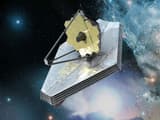Con: I Don't Care
Back to listingViewpoint Against Christianity

“Thank you for asking whether I might have an interest in God, Jesus, or life after death. I must confess, I don’t really much care. So, you might just be wasting your time. I suppose you could call me apathetic or indifferent to religion, because I’m pretty busy between work, my dog, and friends, and so I don’t have much interest in philosophical discussions, except maybe the real threat of ‘climate change.’ Yeah, I used to go to church with my parents, but I’ve kind of grown beyond religion and have gotten comfortable without a religious home. Been there, done that, as the saying goes. Also, most religious institutions seem to just want my money, and they also have too many rules that conflict with my life choices. To be quite frank, I really just don’t care about religion or Jesus; it’s not on my list of priorities.”
Background Discussion
Various social research organizations, including the Pew Research Center and Harvard’s Cooperative Congressional Election Study (CCES), often classify people into distinctive categories. Religious affiliations are typically divided into groups such as Muslim, Jewish, Christian, atheist, or agnostic. However, as we move forward in the 21st century, it’s not the Christian or atheist/agnostic segments who are making the biggest gains. The Pew Research Center classifies religious “nones” into three separate groups: 1. Atheists (disbelieve in the existence of God); 2.) Agnostics (doubt or are unsure about God’s existence), and 3.) “Nothing in Particular,” who don’t really have an opinion, and who now make up one of the fastest- growing religion segments in the United States. According to CCES, atheists represent 5.7% of the population, agnostics 5.7%, and Nothing in Particulars 19.9%. If you are not a professed atheist or agnostic, yet really don’t have much interest in religion, you would fit into the Nothing in Particular category. If so, this section of our website might address some of your unique needs or life requirements. But, as you might respond, who really cares anyway? Well, indulge us and please read on.
Even if you pretty much believe in God, you might still be considered a “Nothing in Particular.” For example, if you find yourself spiritually communing with nature, sometimes even praying, but don’t feel the need to publicly acknowledge belief in a Creator or Savior, you would be considered a “Nothing in Particular.” In fact, many of us think that religious organizations are overly concerned with money and power, and often focused on too many rules and politics. While some of us who are religiously unaffiliated may believe that religious institutions can sometimes benefit society, we are not actively seeking a religion to address our personal needs. We’re more interested in what’s happening this week, this month, this year, not in the afterlife, assuming there even is one. “And if there is a God,” you might reason, “He understands my priorities. God helps us those who help themselves, right? So maybe I should just blow this religious stuff off and move on.” Maybe; maybe not. Let’s take a deeper look.
The Webb Space Telescope

What could the Webb Space Telescope possibly have to do with God, Jesus, or religion? The connection might be tenuous . . . or perhaps profound. Early in the 20th-century, Albert Einstein suggested a static universe, i.e., one with no beginning or end but rather just staying the same. Ten years later, a Belgian Catholic priest (Fr. Georges LeMaitre, PhD.) directly challenged Einstein's theory by introducing the idea of an expanding universe, in which galaxies were recessing (moving away) from each other and thus implying a universe with an initial point of creation. Einstein was wrong, and the Catholic priest was right. Later, Fr. LeMaitre's theory became known as the "Big Bang" and "Hubble's Law,” named after the astronomer (Edwin Hubble) who provided further evidence for it. On July 12, 2022, the Webb Space Telescope began reconfirming Hubble’s work that the universe apparently began about 13.8 billion years ago, and provided further evidence for the Big Bang Theory through images dating to the very infancy of our universe, some 100–250 million years after it began. The pictures are stunning, with the visual beauty and mystique, almost religious in nature. “Okay, so what?” you may be asking. ”Who cares?”
Could it be that God created the universe, and you within it? If true, you might at least be curious about finding out a bit more about your Creator. Maybe science is pointing to what—or Who—lit the Big Bang, something or Someone who might affect your long-term existence and/or happiness. That may be why about 40 Nobel Prize-winning scientists are not apathetic or indifferent to the Christian story, in addition to many entertainers and famous athletes. (See 100 Christians section for more information on 100-plus famous Christians.)
Might Christian faith and science actually be compatible? Since many scientists have made the Christian Decision, maybe that’s enough for you to take a closer look. You may have a part to play in the Christian story. To quote Chris Cisions, a writer for Christian Decisions, "The cold, physical properties of nature are apathetic, indifferent to their fixed outcome. It is a crime that man, who, though possessing free will, would subscribe to the same outlook on our earthly existence.” You might consider exercising your free will to investigate Christianity.
Or, maybe you just “don’t care,” because your life is totally on track and currently have no need of spirituality, purpose, truth, forgiveness, or some hope for relief from the pain and suffering of this world. According to Eric Hoffer, a 20th-century philosopher, "The opposite of the religious fanatic is not the fanatical atheist, but the gentle cynic who cares not whether there is a god or not." Do you care? Should you care?
Maybe complacency or indifference to the potential for something beyond this world is justifiable since you have achieved, or are on a path towards achieving, your own virtual heaven on earth. But, if . . . and when you get the hint that there actually might be a Creator, and you realize you are not He, you might explore the Someone who is not indifferent to your fate and cared enough to die for you.
Please click on the links to videos, documents, quotes, and books regarding further reference to why you might want to find out more about God and Jesus. If you haven’t already, please consider making the Christian Decision. This may be the most important decision of your life, or of your death.
There's so much more!
You're asking the right questions, and now you want to dig a little deeper.
